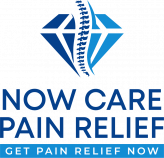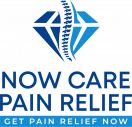Head injury may be associated with injury to the brain, known as concussion. Concussion may involve various frustrating and activity limiting symptoms including headache, trouble thinking, dizziness, or change in personality. If there has been a head injury followed by such symptoms Dr. Steven Bojarski can conduct evaluation and treatment at his Now Care offices in Delaware. To learn more options for evaluation and treatments, call the office today, or request an appointment online.
What is a concussion?
Concussion results from traumatic injury to your brain. Various situations may be associated with a concussion. A sudden impact or abrupt movement can injure the brain. This trauma may disrupt the surface of the brain that controls vital functions such as cognition, movement, sensation, and eyesight.
Abnormal connections between parts of the brain may be disrupted the electrical and chemical flow of information. Head trauma may result in headaches, memory disturbance, visual changes, or trouble sleeping.
Though concussion may resolve after a short period of time, there may be persistent features that are uncomfortable and restrict your quality of life.
What are the symptoms of a concussion?
Concussions sometimes go undiagnosed. Not every concussion causes a loss of consciousness. After your head injury, you may feel fine. But symptoms of a concussion can develop gradually and worsen over time.
The CDC (Center for Disease Control) notes that some symptoms of a concussion, “may appear right away. Others may not be noticed for days or months after the injury, or until the person resumes their everyday life.
Sometimes, people do not recognize or admit that they are having problems. Others may not understand their problems and how the symptoms they are experiencing impact their daily activities.”
Symptoms of a concussion may include:
- Headache
- Memory disturbance
- Ringing in ears
- Nausea
- Vomiting
- Fatigue
- Vision changes
- Confusion
- Dizziness
- Vertigo
After a concussion, you may feel disoriented. You might have trouble answering simple questions or have poor recall of how the injury occurred.
Concussion symptoms may disappear within a few weeks. Some people experience persistent headaches, dizziness, reduced concentration, or problems with coordination. These symptoms can be a sign of post-concussion syndrome, a condition that requires specialized care.
How is post-concussion syndrome treated?
Symptoms following a concussion guide treatment. Different types of exercise may be recommended including physical, vestibular, and ocular therapy.
If there is a memory disturbance, therapeutic options such as medication or cognitive therapy will be used, with repeated monitoring with computerized testing.
Nutritional approaches will be integrated with other modalities, to speed recovery. Various approaches to eliminate headaches will be used, to provide relief.
Are you struggling with frustrating symptoms after a concussion? Call the office today or request an appointment online.

